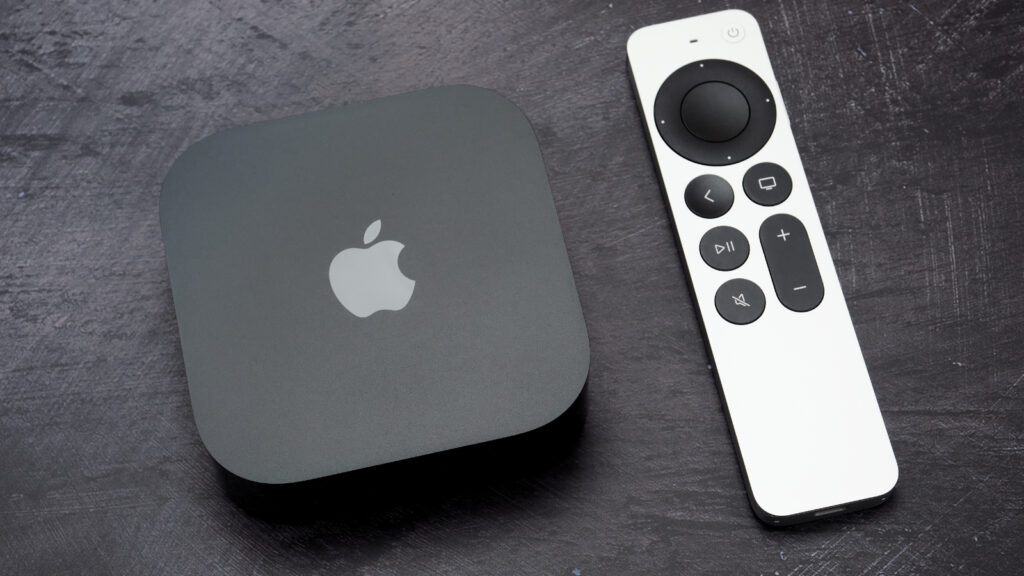TV or not, Apple is coming to save the smart home

As a young mythical beast, the Macalope was raised on a steady diet of Apple rumors.
The neighbors were, frankly, concerned. They have very little nutritional value. (“They” being the rumors, not the neighbors.) There was talk of calling child protective services. But it all worked out.
Throughout the late 1990s, one of the consistent rumors had Apple working on a set-top box. This was, of course, back when you could put a box on top of your TV set and it wouldn’t immediately fall off because the average TV set was like three feet deep. Some were as much as nine feet deep, burrowing through the wall of the house and out into the driveway. You try to tell Gen Z about it now and they won’t believe you.
Most of these rumors came from a site called “Apple Recon” which was pretty hot on the idea of an Apple set-top box. Rumors often reflect more about the focus of the person spreading the rumor than they do about Apple’s plans. Was Apple working on a TV device in the wake of the failure of the Pippin (which was at one point pitched as a potential set-top device) and the return of Steve Jobs? Probably. But Apple works on lots of things that never see the light of day and it’s hard to imagine what form an Apple set-top box could have taken, given that most people were still years away from having high-speed internet and streaming wouldn’t be a thing for a decade. Possibly Apple could have shipped something like the TiVo, which wasn’t released until 1999, or a more comprehensive version of the EyeTV, but the relatively niche appeal of these devices probably explains why the company never shipped anything until the Apple TV.
Not that the Apple TV doesn’t have a certain je niche sais quoi.
So, yeah, Apple TV rumors are actually older than Apple phone rumors. And now they’re back again thanks to Mark Gurman who last month suggested Apple was “evaluating” making an Apple-branded TV set. Just as rumors of set-top boxes in the late 1990s didn’t mean Apple was making one, this clearly doesn’t mean Apple’s going to make a TV, either. In an age where TV sets are sold on the cheap with manufacturers making it up by cramming them full of ads and scanning software to see what you’re watching, though, an Apple TV set isn’t completely without appeal. And it wouldn’t be the first time the company came into a low-margin market and managed to make big bucks with a premium offering.
Apple may make a TV set, but it doesn’t need to. What is encouraging, however, is seeing the company make the home more of its focus. It should. After all, it built that home set for all those keynotes. It’s gotta make back that investment somehow.
As The Verge’s Jennifer Pattison Tuohy correctly notes, “The smart home has an interface problem”. After years of interoperability standards things mostly work except for when they don’t, which is too often. And when things don’t work, it’s a baffling confluence of culprits from your security camera to your router to your ISP.
IDG
“Who did this?! Did you do this?” All three of them just standing there, shuffling their feet and looking guilty.
Apple needs to do for the smart home what it did for Bluetooth headphones with AirPods: take the pain out of the experience. OK, sure, sometimes AirPods don’t work exactly right, either, but when they do it’s that saying about advanced science looking like magic. And Apple can take one of the problem children out of the equation.
The company’s HomeKit framework and Apple Home smart home platform leverage local control, meaning that, unlike competitors Amazon and Google, it doesn’t rely on a cloud connection.
Whether Apple makes a TV or not isn’t that important. What is important is the company getting serious about being in the smart home business beyond the little toes it’s dipped into the market so far. Maybe once it realized it wasn’t going to get into your garage, it decided to go for the house. With rumors of a home hub and camera let’s hope this isn’t set-top box-style smoke but real fire.



